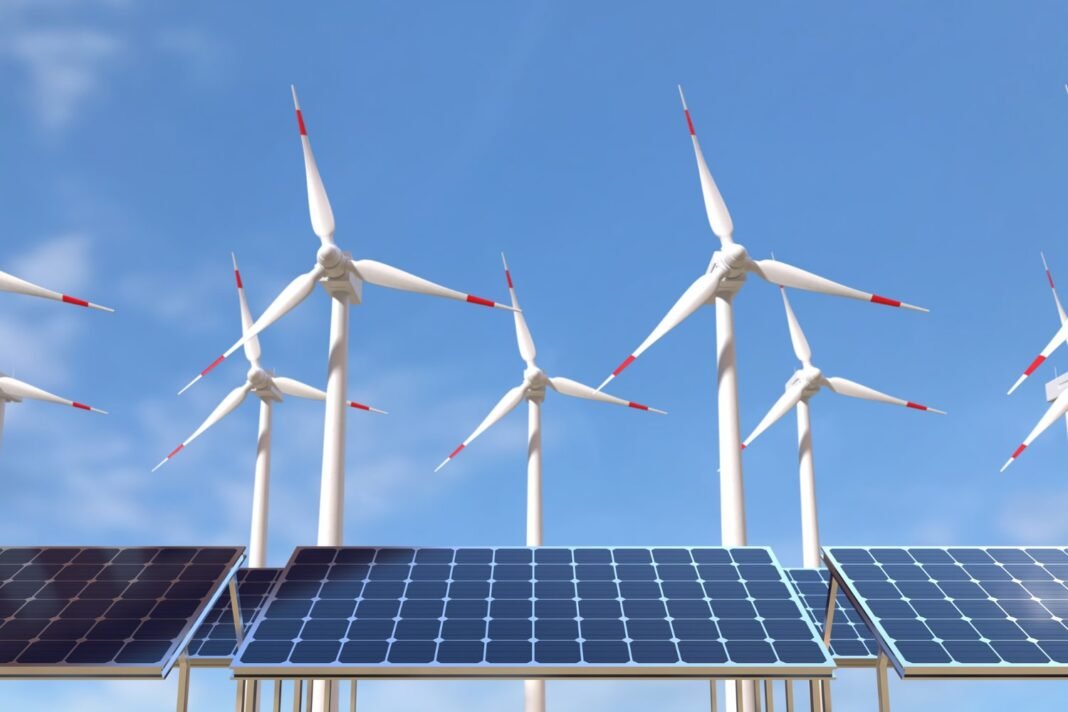The budget proposal from the Trump administration for 2026 has raised alarm among environmental advocates, industry representatives, and lawmakers.
By suggesting considerable cuts to renewable energy programs, this plan threatens to undermine the progress the United States has made in shifting towards cleaner energy alternatives.
Summary of Proposed Reductions
President Trump’s budget details a $163 billion decrease in federal expenditure, with a large share aimed at environmental and energy programs.
Most notably, the proposal intends to eliminate over $15 billion set aside for renewable power and carbon capture projects, as outlined in the bipartisan infrastructure law from 2021.
Moreover, it seeks to revoke $6 billion allocated for electric vehicle (EV) charging infrastructure.
The Department of Energy’s Office of Energy Efficiency and Renewable power (EERE) faces a proposed budget cut of 65%, equating to $1.3 billion.
This reduction would severely impact research and development efforts in solar, wind, and various other clean energy technologies.
Consequences for Environmental Agencies
The Environmental Protection Agency (EPA) is projected to endure nearly a 55% budget cut, which includes a $235 million reduction in its Office of Research and Development.
Such a move would limit the agency’s capacity to perform critical research on climate change and environmental justice.
Additionally, the National Oceanic and Atmospheric Administration (NOAA) would see a $1.3 billion decline in climate research grants and a $209 million reduction in satellite funding.
These cuts could compromise the nation’s ability to effectively monitor and respond to environmental shifts.
Impact on Agriculture and Rural Areas
The U.S. The Department of Agriculture (USDA) is facing proposed reductions exceeding $4.5 billion, which would affect conservation initiatives, rural development programs, and research grants.
These cuts could have detrimental effects on farmers and rural communities that depend on these programs for sustainable practices and economic assistance.
Industry and Political Responses
Critics assert that the proposed budget jeopardizes the nation’s advancements in addressing climate change and transitioning to a clean energy economy.
Senator Patty Murray characterizes the plan as “very light on details” and voiced concerns about its potential to “strip away funding that protects Americans’ health, preserves our environment, and supports rural communities and farmers.”
Industry specialists caution that diminishing investment in renewable energy could result in the United States losing its leading position in the global clean energy market to nations like China, which continues to make significant investments in green technologies.

Investment Confidence on the Decline
Equally troubling is the message the proposed budget sends to private investors and innovators.
For years, government support has acted as a catalyst for clean tech breakthroughs and market confidence. When federal backing disappears, venture capital and institutional investment often follow suit.
This can result in delayed projects, stagnant technological development, and the offshoring of innovation.
Without a clear national commitment to renewable energy, the U.S. may struggle to maintain its leadership in climate technology, falling behind in a global race where innovation is paramount.
Undermining Climate Resilience
Moreover, critics argue that defunding environmental and energy programs undermines national resilience.
As the climate crisis intensifies bringing more frequent wildfires, hurricanes, and droughts investment in sustainable infrastructure and disaster preparedness becomes not just beneficial but essential.
Cutting programs at the EPA, NOAA, and USDA could leave communities more vulnerable to climate-related disruptions and compromise the nation’s ability to respond effectively.
While budget savings may appear fiscally prudent in the short term, the long-term costs of inaction could be far greater, both in terms of dollars and public safety.
Potential Consequences for Renewable Energy Sector
The proposed budget cuts could stall the growth of the renewable power sector, which has been experiencing record-breaking expansion.
In 2024, renewables accounted for a combined 93% of all new energy capacity in the U.S., signaling a significant shift towards clean energy sources.
The Guardian
Reducing federal support may lead to job losses, decreased innovation, and diminished competitiveness in the global market. Moreover, it could hinder the country’s ability to meet climate goals and reduce greenhouse gas emissions.
Expert Editorial Comment
President Trump’s 2026 budget proposal presents a substantial shift in the United States approach to energy and environmental policy.
By significantly cutting funding for renewable energy and related programs, the plan risks undermining years of progress in clean energy development and climate change mitigation.
As Congress deliberates on the proposed budget, the future of the nation’s commitment to a sustainable and environmentally responsible energy strategy hangs in the balance

